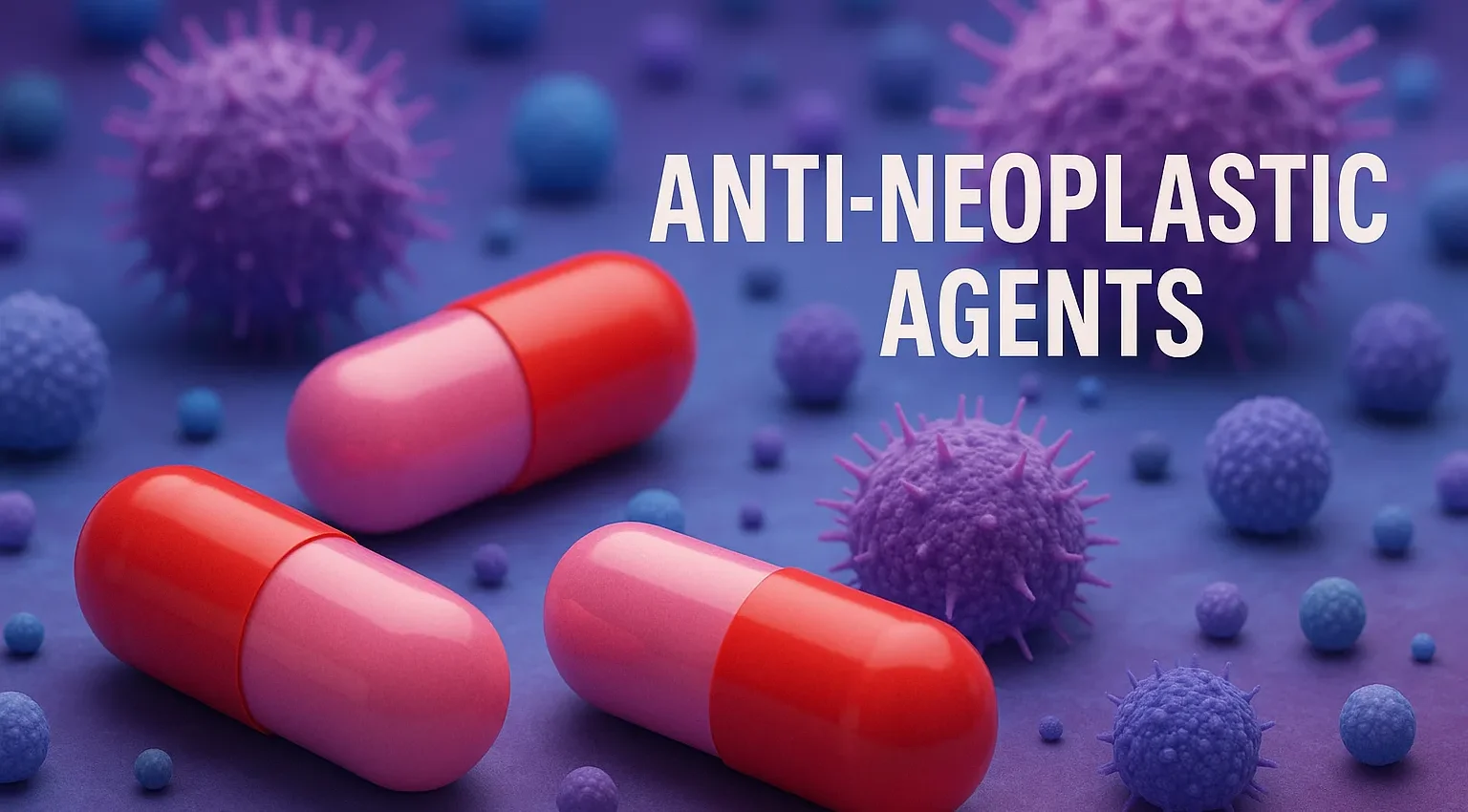Anti-neoplastic agents are drugs used to inhibit or stop the growth of cancer cells, aiding in the treatment of various malignancies.
Definition:
- These are specialized drugs used primarily to treat cancer.
- They work by destroying or inhibiting the growth of cancer cells.
- However, these agents can also affect healthy cells, leading to various side effects.
Medical Uses
- Cancer Treatment: Used to manage and eliminate various types of cancer.
- Preventing Tumor Growth: Inhibit the proliferation of malignant cells.
- Adjunct Therapy: Combined with other treatments like surgery or radiation to enhance efficacy.
Side Effects
Common side effects of anti-neoplastic agents include:
Advertisements
-
Gastrointestinal:
- Nausea
- Vomiting
- Mouth ulcers
- Diarrhea
- Constipation
- Abdominal discomfort
-
Hematological:
- Lowering of blood cell counts (e.g., anemia, leukopenia, thrombocytopenia)
-
Dermatological:
- Hair loss (alopecia)
- Rash
-
Other:
- Fatigue
- Increased risk of infections
- Potential for severe, life-threatening side effects
Mechanism of Action
-
Targeting Cell Division:
- Cancer is characterized by abnormal and uncontrolled cell division.
- Anti-neoplastic agents specifically target rapidly dividing cancer cells.
-
Cytotoxic Effects:
- These drugs are cytotoxic, meaning they can kill or damage cells.
- While effective against cancer cells, they may also harm healthy dividing cells (e.g., bone marrow, gastrointestinal lining, hair follicles).
-
Disruption of Cellular Processes:
- Interfere with DNA replication and repair mechanisms.
- Inhibit essential enzymes and proteins required for cell proliferation.

